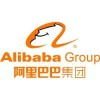3 BM Infotrade Jobs
Search Engine Optimization Intern
BM Infotrade
posted 1mon ago
Job Role Insights
Key skills for the job
Job Description
Keyword Research: Assist in conducting keyword research to identify relevant and high-ranking keywords for target audiences. This involves using keyword research tools, analyzing search trends, and identifying opportunities for optimization.
On-Page Optimization: Support in optimizing website content and structure to improve search engine visibility. This includes optimizing meta tags, headings, URLs, and internal linking to enhance keyword relevance and improve user experience.
Off-Page Optimization: Assist in implementing off-page optimization strategies to improve website authority and backlink profile. This may involve outreach to acquire high-quality backlinks, monitoring and analyzing backlink profiles, and managing directory listings.
Content Creation and Optimization: Collaborate with content creators to develop optimized content that aligns with SEO best practices. This includes optimizing content for target keywords, improving readability, and implementing SEO-friendly formatting.
Technical SEO: Assist in conducting website audits to identify technical issues that may affect search engine visibility. This may involve analyzing site speed, crawlability, mobile-friendliness, and implementing technical optimizations.
Analytics and Reporting: Support in monitoring website performance using tools like Google Analytics and providing regular reports on key SEO metrics. This includes tracking keyword rankings, organic traffic, and other relevant performance indicators.
Stay Updated with Industry Trends: Keep up-to-date with the latest trends, algorithm updates, and best practices in the SEO industry. This includes reading industry blogs, attending webinars, and participating in relevant forums or communities.
Collaborate and Learn: Work closely with the SEO team and other cross-functional teams to learn from experienced professionals and gain hands-on experience in various aspects of SEO.
Employment Type: Full Time, Permanent
Read full job descriptionBM Infotrade Interview Questions & Tips
Prepare for BM Infotrade roles with real interview advice
People are getting interviews at BM Infotrade through
People are getting interviews through
(based on 3 BM Infotrade interviews)
Referral
Walkin
Job Portal
34%
33%
33%
Moderate
Confidence
?
Moderate Confidence means the data is based on a sufficient number of responses received from the candidates
What people at BM Infotrade are saying
What BM Infotrade employees are saying about work life
based on 7 employees
Monday to Saturday
Within country
Day Shift
Similar Jobs for you
Share an Interview






























